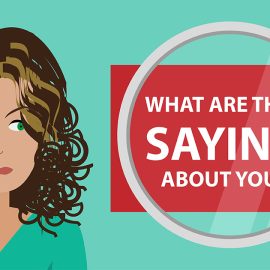
7 Small Business Marketing Ideas to Beat Your Competitors on Facebook
In this post we present 7 small business marketing ideas that can help you on your social media initiatives. So let’s get started.
1. Know what social media networks to focus on
While you have to be on social media, most businesses can’t do all social networks well at the same time. So you need to figure out where your customers are and where the competition is playing. Facebook is the leading social network for business-to-consumer (B2C) marketing.
2. Optimise your profile on that network
It’s amazing how many companies create a page or profile but don’t optimise that presence.
On Facebook, you have the ability to provide a ton of detail on your page. To start with, optimise your bio using the maximum number of characters allowed. Remember, you’re allowed up to 100 characters in this basic bio description. This is the first thing visitors to your page will see, plus it helps drive search results within Facebook.
Use this section to tell Facebook users who you are and what you do. Do not put your hours of operation, locations or other details like that here, as there are other specific sections of the page for that info.
3. Communicate your brand personality
While you need to be present on the social networks where your competition is, you should not sound or look just like them. This means both being clear on the unique value YOU bring your customers — be it lower price, higher quality, more variety, more convenience, etc. — and having a brand personality.
Your brand might be humorous or silly or serious or helpful or encouraging. Whatever it is, communicate it consistently in your Facebook posts. The key here is being consistent in your “voice” and being unique from the competition, so your fans look forward to your posts and know what to expect from your brand.
4. Build a strong fan base
You obviously need a base of likes, followers or fans. But too often, there is overemphasis placed on the number of these followers. It’s much more important to have quality fans that actually use or would use your product or service, share your news and engage with you virtually on social media, and hopefully, literally in your business as well.
There is no “right” number of followers. If you have a mailing list of say 500 or 1,000 people, then invite those people to follow you on Facebook. Assuming these people have opted in to engage with you at some point, it’s realistic to assume that maybe half of those would take a sec to follow you on Facebook.
5. Create great content that engages
Another reason to be weary of hype around number of likes, is that this doesn’t show whether or not these followers are active or engaged with you.
Getting someone to like or follow your business once is a good start, but behaviour that leads to revenue involves engagement. Are your followers sharing your content or liking specific posts or using the coupons/specials you promote on Facebook?
Remember, you can learn from your competition and “copy” their ideas. If you find out photo-based posts drive high engagement, then try a couple posts that follow that model, using YOUR personality, of course.
6. Measure and analyse what’s working and not working
As with other parts of your business and marketing, you need to have clear goals with your social media and consistently measure your performance and adjust accordingly.
Every 2 weeks, analyse how much web traffic is being driven to your website by social media channels, and how much of that traffic is actually converting to sign ups.
You could do special offers only for Facebook followers, and then measure how many of those turned into sales.
7. Integrate social media with your other marketing channels
While marketing has become much more complex over the last few years, not to mention more data-driven, it’s become more critical than ever to employ integrated marketing strategies. This means your social media must align, complement and augment all your other marketing initiatives, from couponing to advertising to email marketing and beyond. All your marketing channels should build on each other to provide a consistent brand image, message and target customer relevance.
This is also true with your SEO. Many people work to understand what keywords are driving the most quality traffic to their website, but they don’t think about using those keywords in other channels.
SOURCE: Post Planner
Need an online presence but are confused on how and what to do? Let me help you by setting up your social media accounts and giving them a uniform look so that your business can be easily recognised.



